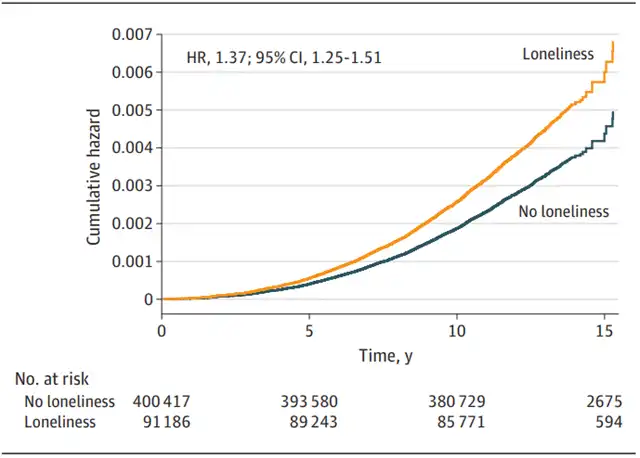Loneliness Linked to 37% Increased Parkinson’s Risk
- EB Virus Could Be Infected by Kiss: A Hidden Threat Linked to Cancer
- The Silent Threat: How Gas Stoves Pollute Our Homes and Impact Health
- Paternal Microbiome Perturbations Impact Offspring Fitness
- New Report Casts Doubt on Maradona’s Cause of Death and Rocks Manslaughter Case
- Chinese academician unable to provide the exact source of liver transplants
- Early Biomarker for Multiple Sclerosis Development Identified Years in Advance
Loneliness Linked to 37% Increased Parkinson’s Risk
- AstraZeneca Admits for the First Time that its COVID Vaccine Has Blood Clot Side Effects
- Was COVID virus leaked from the Chinese WIV lab?
- HIV Cure Research: New Study Links Viral DNA Levels to Spontaneous Control
- FDA has mandated a top-level black box warning for all marketed CAR-T therapies
- Can people with high blood pressure eat peanuts?
- What is the difference between dopamine and dobutamine?
- How long can the patient live after heart stent surgery?
Loneliness Linked to 37% Increased Parkinson’s Risk
“JAMA Neurology”: Loneliness Linked to a 37% Increased Risk of Parkinson’s Disease in a Study of Nearly 500,000 People.
Loneliness, a distressing emotional state resulting from a gap between desired and perceived social relationships, has been associated with increased emotional vulnerability and hyper-vigilance [1]. Additionally, individuals experiencing loneliness often exhibit unhealthy lifestyles and poorer physical health [2]. Loneliness has also been linked to adverse effects on brain health and an increased risk of neurodegenerative diseases like Alzheimer’s disease and related dementias [3,4].
To date, there has been no research confirming the relationship between loneliness and the risk of Parkinson’s disease (PD). Given that PD is now the second most prevalent neurodegenerative disease and is characterized by its heterogeneity and diagnostic challenges, understanding the correlation between loneliness and PD may introduce new modifiable factors for PD prevention.
A recent study published in the Journal of the American Medical Association Neurology [5] sheds light on this issue. Researchers from Florida State University College of Medicine conducted a study that followed almost 500,000 participants for 15 years.
They found that loneliness was associated with a 37% increased risk of developing PD. Even after adjusting for demographic factors, socioeconomic status, social isolation, PD polygenic risk scores, smoking, physical activity, body mass index, diabetes, hypertension, stroke, myocardial infarction, depression, and psychiatric consultations, loneliness remained associated with a 25% increased risk of PD.

This study used data from participants in the UK Biobank, with self-reported loneliness being assessed through questionnaires. In the 15.58-year follow-up period, 2,822 participants were diagnosed with PD, with 2,273 reporting no loneliness and 549 reporting loneliness.
The primary analysis showed that individuals reporting loneliness had a 37% increased risk of developing PD compared to those who did not report loneliness. This association remained consistent across various risk assessment models, including the baseline model (Model 1) adjusted for age and gender. Additional models (Models 2-8) adjusted for education level, Townsend deprivation index, social isolation, PD polygenic risk score, smoking, and physical activity. The results indicated that these confounding factors did not significantly diminish the association between loneliness and the risk of PD.

Participants who reported loneliness (yellow) had a 37% increased risk of developing PD compared with participants who did not report loneliness (blue)
However, it’s worth noting that in Model 6, which further adjusted for body health factors such as BMI, diabetes, hypertension, myocardial infarction, and stroke, participants reporting loneliness had a 32% increased risk of PD. This represents a 13.1% reduction in the impact of loneliness on PD risk compared to Model 1.
A similar situation occurred in Model 7, which additionally adjusted for depression and psychiatric consultation history, where loneliness was associated with a 28% increased risk of PD, corresponding to a 24.1% reduction in the impact of loneliness on PD risk compared to Model 1. In Model 8, which considered all the confounding factors, loneliness was associated with a 25% increased risk of PD, representing a 33.8% reduction compared to Model 1.

In Models 1-8, the association between loneliness and PD risk
The study found no significant interactions between loneliness and gender, age, or PD polygenic risk score. When analyzing follow-up time in stages, the relationship between loneliness and PD risk was not present within the first 5 years of follow-up but became apparent in the subsequent 5 to 15 years.
In conclusion, this study reveals an association between loneliness and an increased risk of PD, with the risk decreasing to some extent when considering various confounding factors. This is the first study to explore the connection between loneliness and PD risk, providing valuable evidence that loneliness is a psychosocial determinant of health and is linked to increased rates of occurrence and mortality from neurodegenerative diseases.
The researchers speculate that loneliness may increase the risk of PD through multiple pathways, including metabolic, inflammatory, and neuroendocrine mechanisms.
Other mediating factors, such as neuroinflammation mediated by microglia cells, might also be involved.
Future research is needed to establish the mechanisms through which loneliness increases the risk of PD and explore other relevant research areas, including changes in loneliness before and after the onset of PD, to better understand loneliness as a risk factor for PD and its potential consequences.
References:
[1] Hawkley L C, Cacioppo J T. Loneliness matters: A theoretical and empirical review of consequences and mechanisms[J]. Annals of behavioral medicine, 2010, 40(2): 218-227.
[2] World Health Organization. Social Isolation and Loneliness Among Older People: Advocacy Brief. World Health Organization; 2021.
[3] Sutin A R, Luchetti M, Aschwanden D, et al. Loneliness and risk of all-cause, Alzheimer’s, vascular, and frontotemporal dementia: a prospective study of 492,322 individuals over 15 years[J]. International Psychogeriatrics, 2023, 35(6): 283-292.
[4] Qiao L, Wang G, Tang Z, et al. Association between loneliness and dementia risk: A systematic review and meta-analysis of cohort studies[J]. Frontiers in Human Neuroscience, 2022, 16: 899814.
[5] Terracciano A, Luchetti M, Karakose S, et al. Loneliness and Risk of Parkinson Disease[J]. JAMA neurology, 2023.
Loneliness Linked to 37% Increased Parkinson’s Risk
(source:internet, reference only)
Disclaimer of medicaltrend.org
Important Note: The information provided is for informational purposes only and should not be considered as medical advice.



